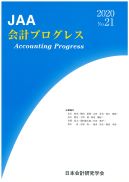Volume 2021, Issue 22
Displaying 1-6 of 6 articles from this issue
- |<
- <
- 1
- >
- >|
-
2021Volume 2021Issue 22 Pages 1-16
Published: 2021
Released on J-STAGE: September 01, 2021
Download PDF (806K) -
2021Volume 2021Issue 22 Pages 17-31
Published: 2021
Released on J-STAGE: September 01, 2021
Download PDF (737K) -
2021Volume 2021Issue 22 Pages 33-49
Published: 2021
Released on J-STAGE: September 01, 2021
Download PDF (784K) -
2021Volume 2021Issue 22 Pages 51-66
Published: 2021
Released on J-STAGE: September 01, 2021
Download PDF (785K) -
2021Volume 2021Issue 22 Pages 67-85
Published: 2021
Released on J-STAGE: September 01, 2021
Download PDF (863K) -
2021Volume 2021Issue 22 Pages 87-104
Published: 2021
Released on J-STAGE: September 01, 2021
Download PDF (871K)
- |<
- <
- 1
- >
- >|
